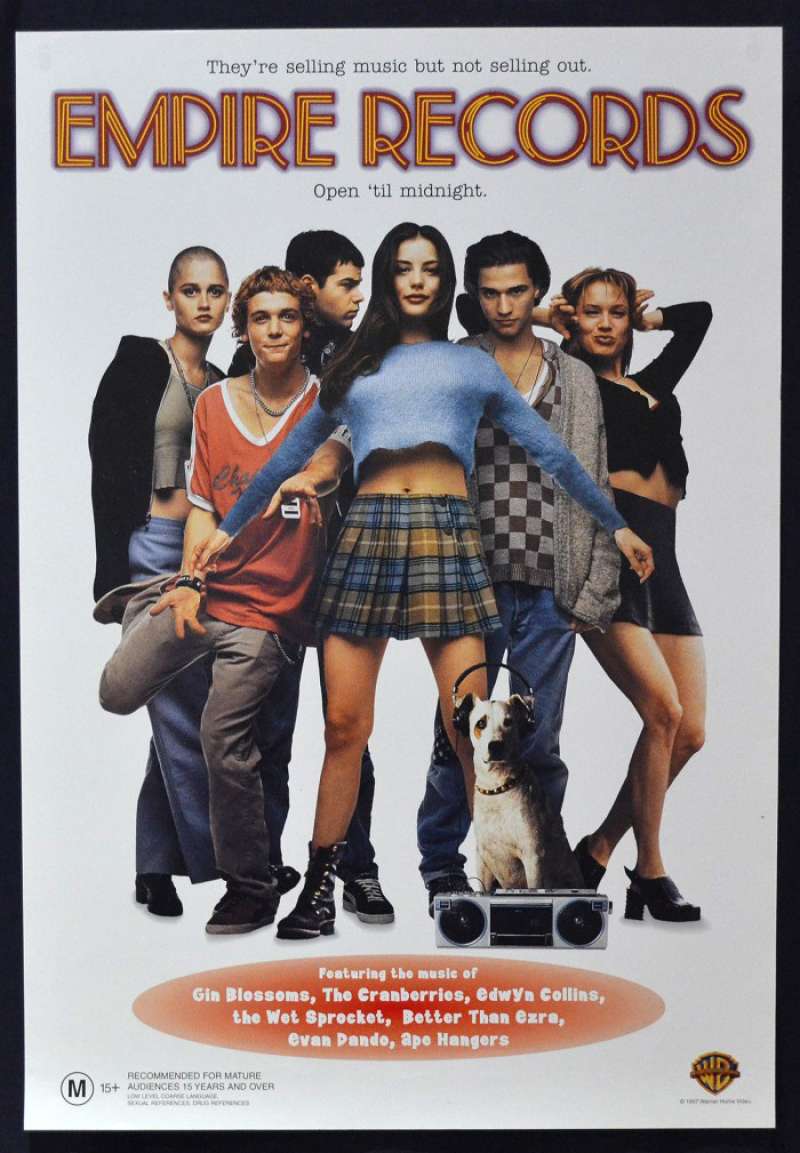Now Playing
Current DJ: DJ Eco
Jeannie Piersol Gladys from The Nest (High Moon) Add to Collection
Requests? 773-DJ-SONGS or .(JavaScript must be enabled to view this email address)
 by Noah Haynes
by Noah Haynes
One sad thing about modern movies is that we don’t get enough clubhouses anymore.
In any old kid’s movie, you’d be sure to see some elaborately constructed clubhouse, treehouse, or even a needlessly complex Rube-Goldberg machine accomplishing something simple like opening a gate (à la The Goonies). It’s a specific analog creativity that charms the viewer.
A similar sense of creativity—albeit covered with a layer of teenage ennui—can be felt in 1995’s Empire Records. The movie presents a struggling independent record store, along with the struggles of the ragtag group of teens it employs.
Although it’s just their place of work, the teen workers feel a sense of ownership over the store. They play their own music; they show up late with apologies; they glue quarters to the floor as an artistic message. One impulsive employee, Lucas, even goes so far as to steal $9000 of the store’s money and gamble it away, hoping to earn enough back to save the store from being bought out.
But despite the chaotic display of personal tastes, quirks, and grudges, the employees of Empire Records are unified with one idea: rebellion against The Man. Although their on-site boss, Joe, is fine—he’s a long-haired, drum-owning, “cool” adult—their big boss Mitchell is a strait-laced, money-focused pencil-pusher who just wants to turn Empire Records into a corporate Music Town. Gross! That would mean no revealing clothing, no head-banging in the aisles, no tattoos, and definitely no fun.
And having fun (maybe more than being cool) is very important to the movie. One seemingly aimless scene shows Mark, the goofy wildcard, chowing down on an edible and watching music videos. Yes, we might be losing the store and all getting fired, but that doesn’t mean we don’t have time to have some funnn. With this, the film captures the passionate, but scatterbrained nature of the teenage mind.
Moreover, it taps into the charm and sweetness at this stage of life. A.J. confesses his love on a romantically laid-out rooftop. Deb struggles with depression and suicidal thoughts, so the crew puts on a fake funeral to express how they appreciate her. A shoplifter discovers all he really wants is to belong on a team. Throughout the movie, the teens get a chance to practice being adults in a place that is (relatively) safe and controlled, and this creates some really touching moments. That’s what makes Empire Records great.
Despite these positives, though, Empire Records is still a product of the time. Mid-way through the film we observe some definitely suspect underage sexual encounters which receive very little judgement. (Or, well, yes there’s some slut-shaming, but not any judgement towards the adult male perpetrator.)
Additionally there’s a present lack of diversity in the movie and the store. All of the kids are white, mostly guys, and it’s hard to tell whether something other than heterosexuality would be accepted, or judged like the gay fans of Rex Manning’s music.
So yes, even though the record store exists as any music lover’s dream—it’s still just a dream. And dreams are built on partial memories that cut out all the bad parts. Like any element of the '90s, it’s fun and fine to appreciate…but maybe just don’t romanticize All of it.
Catch a screening of Empire Records, presented by the CHIRP Radio Music Film Festival, on Wednesday, February 12, 7:30pm at Gman Tavern. More details and link to RSVP here.
Previous entry: CHIRP Radio Weekly Voyages (Feb 3 - Feb 9)